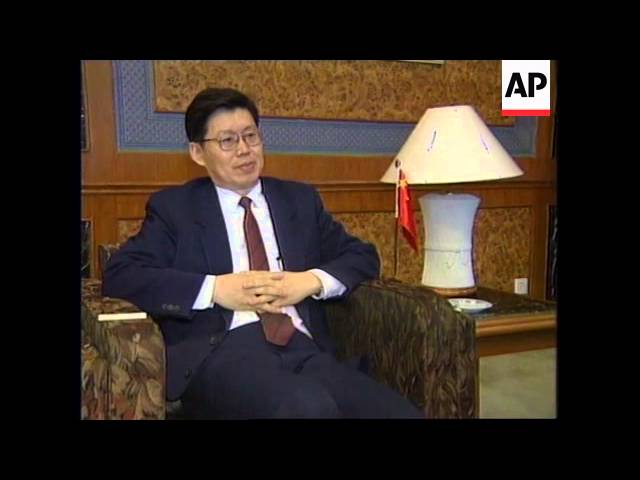Britain’s deputy prime minister Michael Heseltine has arrived in Hong Kong – the next stop on his trade mission with UK businessmen who are exploring investment opportunities in the Far East.
The 200-strong delegation – led by Heseltine – have just spent a week in China where the British telecommunications industry held a seminar aimed at breaking into the vast Chinese telecommunications market.
The exhibition follows last month’s failed merger of U-K firms British Telecom (BT) and Cable & Wireless.
The merger would have given B-T a controlling interest in Hong Kong Telecom, raising Chinese concerns that Britain wants to keep control of telecommunications after the colony’s handover in 1997.
Among the many companies travelling to China with Michael Heseltine was a delegation from the U-K telecommunications industry.
Although current Chinese policy forbids foreign telecommunications companies to operate in China, the seminar was held as a showcase for British firms trying to sell their products, services and know-how to the Chinese.
Beijing’s leaders indicated recently that the country’s domestic telecommunications market would not be opened up for at least another 25 years.
In spite of this of this some British companies like Hughes Network were successful in signing a multi-billion (b) dollar (U-S) contract with the town of Wuhan.
Last month talks of a merger between the UK’s Cable & Wireless and British Telecom aroused concern in Beijing that Britain was seeking to retain some control in Hong Kong after the colony was handed over to the Chinese in 1997
Cable & Wireless owns a 58 per cent stake in Hong Kong Telecom Ltd, the island’s leading telecommunications provider.
SOUNDBITE: (Mandarin)
Translation: “I think the purpose is quite clear, it would like to make further control on the Hong Kong telecom industry after its withdrawal in 1997 by gaining the control of Cable and Wireless.”
SUPERCAPTION: Xu Shanyan, Spokesman Chinese Ministry of Post
and Telecommunications.
Cable & Wireless operations in Hong Kong are a lucrative operation for the company, which provides international services in 30 countries and internal networks in 20 others.
A successful merger between B-T and Cable and Wireless would also have given B-T an established base from which to access China’s booming telecommunications market.
However China says that without the necessary regulation it will continue to regard Hong Kong’s telecommunications companies as “foreign” after 1997.
China’s telecommunications market is predicted to grow at an average annual rate of 30 per cent up to the year 2000, six times more than the average worldwide growth in this sector.
In the next five years telecommunications turnover in China is estimated at 36 billion U-S dollars with the installation of an extra 60 million new lines.
British Telecom says China’s concerns over the potential merger with Cable and Wireless were misplaced.
SOUNDBITE: (English)
“I think this is understandable given BT’s past history, that some governments may think that we are still part of the UK government but, of course, as you know, for over ten years now, BT has been a company quoted on the stock exchanges worldwide and we are a truly privatized organization.”
SUPERCAPTION: Graham Moore, British Telecom, Manager NE Asia.
B-T was privatised in 1984 and the UK government sold its remaining st 22 per cent stake in the company three years ago.
Last week, there was no ambiguity between China’s telecommunications representative and their British colleagues as both sides were holding a seminar on the use of optical fibres in the industry.
SOUNDBITE: (English)
a commercial matter.”
Government Relations.
You can license this story through AP Archive: http://www.aparchive.com/metadata/youtube/1f3ec387251d0c2e40ecd52d795d6a20
Find out more about AP Archive: http://www.aparchive.com/HowWeWork
